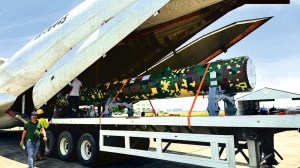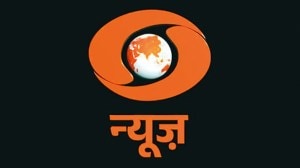- India
- International
Dilma Rousseff vs Left vs Right
Brazil’s president has upset both sides of the spectrum. The stalemate seems set to continue.
 Brazillian President Dilma Rousseff
Brazillian President Dilma RousseffReports of continued protests in Brazil, calling for President Dilma Rousseff’s impeachment, would indicate that the president and her Partido dos Trabalhadores (PT, or Workers’ Party) are skating on thin ice. In reality, impeachment at this stage is nearly impossible. The PT has too much at stake. It has been democratically elected for four consecutive terms, and will fight to the finish if its legacy is put at risk. Rousseff’s approval rating is, indeed, only 8 per cent, lower than that even of former president Collor de Mello, who resigned in the final stages of his impeachment trial in 1992. But the situation now is very different. Unlike in 1992, when corruption allegations were levelled directly against the president, members from all major parties face charges now, including the presidents of the Senate and the Chamber of Deputies, both of whom are from the Brazilian Democratic Movement Party (PMDB). It’s also unlikely that the process of impeachment, if it begins at all, can be carried out fully with a two-thirds majority in both Houses.
Patricia Campos Mello, editor-at-large at Folha de Sao Paulo, Brazil’s largest newspaper, says that “the most likely approach to call for impeachment would be to prove alleged campaign finance irregularities. However, this would mean that both President Rousseff and Vice President Michel Temer [from the PMDB] will be removed from office, which doesn’t sound very appealing to many politicians and businessmen.” Another option would be to force Rousseff to resign, but this too is unlikely. The president herself declared in an interview last month, “I won’t fall. I won’t. I won’t. That would be a cop-out. It’s a political fight.”
Why does Rousseff face such disapproval? The PT has upset both sides of the political spectrum: Its leftist supporters feel abandoned as the party implements austerity measures, and its right-wing opponents hark at the PT’s social programmes. Moreover, many years of pork-barrel politics have resulted in rampant corruption, which has been laid bare. Indian readers will be familiar with the scale and frequency of corruption in Brazil. The Mensalão scandal — buying votes for a monthly payment — took place only a couple of years before India’s cash-for-votes scandal in 2008. Just like the “Coalgate” scandal, Brazil’s “Carwash” scandal, centred on oil giant Petrobras, has opened up a can of worms that implicates all major parties.
The protests, however, have decreased in intensity. The numbers have reduced from two million in April to 4,00,000 at the protest on August 16. Nevertheless, the nature of the protesters has remained almost constant since the protests began in June 2013. According to Datafolha, a Brazilian pollster, most protesters are white and economically well off; 94 per cent of all 1,20,000 protesters gathered in São Paulo on August 20 said that they receive more than twice the minimum wage, and only 3 per cent are black (preto) and 17 per cent brown (pardo). This is in striking contrast to the composition of Brazil’s population — 50.7 per cent consider themselves black or brown, and over half live on less than minimum wage.
Why are the rich and middle classes protesting? The standard reply is “corruption”. Another is their support for the opposition Brazilian Social Democracy Party (PSDB). Yet another reason may be that the poor, and not the rich, have gained most from the PT’s rule. Fernando Canzian, a Brazilian columnist, writes that “in the 10 years prior to the middle of Rousseff’s first administration, the per capita revenue (discounting inflation) among the poorest 10 per cent rose 70 per cent. Among the richest 10 per cent (the recent protesters), the increase was only 12.6 per cent.” Notably, the protests are not one-sided. Brazilians in 32 cities came out in support of Rousseff and against impeachment on August 20.

The political stalemate in Brazil is significant for India too, which is an important commercial and strategic partner. India exports more to Brazil than to Japan, France, Indonesia or South Korea. Roughly half of Brazil’s diesel comes from India, while we import soya, minerals and petroleum. As the Brazilian economy slows due to the political crisis, so will this bilateral trade.
India could try, however, to benefit from the slowing Chinese demand for Brazilian goods. Brazil’s crises, as well as this administration’s general indifference to foreign policy, also means a further loss of momentum in multilateral concerns like the BRICS Bank or the expansion of the preferential trade agreement with Mercosur. Whatever the result of the protests, we can expect the entropy to last until the end of this government’s term, and perhaps spill into the next term as well.
The writer, formerly with Gateway House, Mumbai, is a Latin America expert currently working on a research project funded by Stanford University, US. He was in Brazil during this month’s protests.
EXPRESS OPINION
More Explained
Apr 20: Latest News
- 01
- 02
- 03
- 04
- 05









































